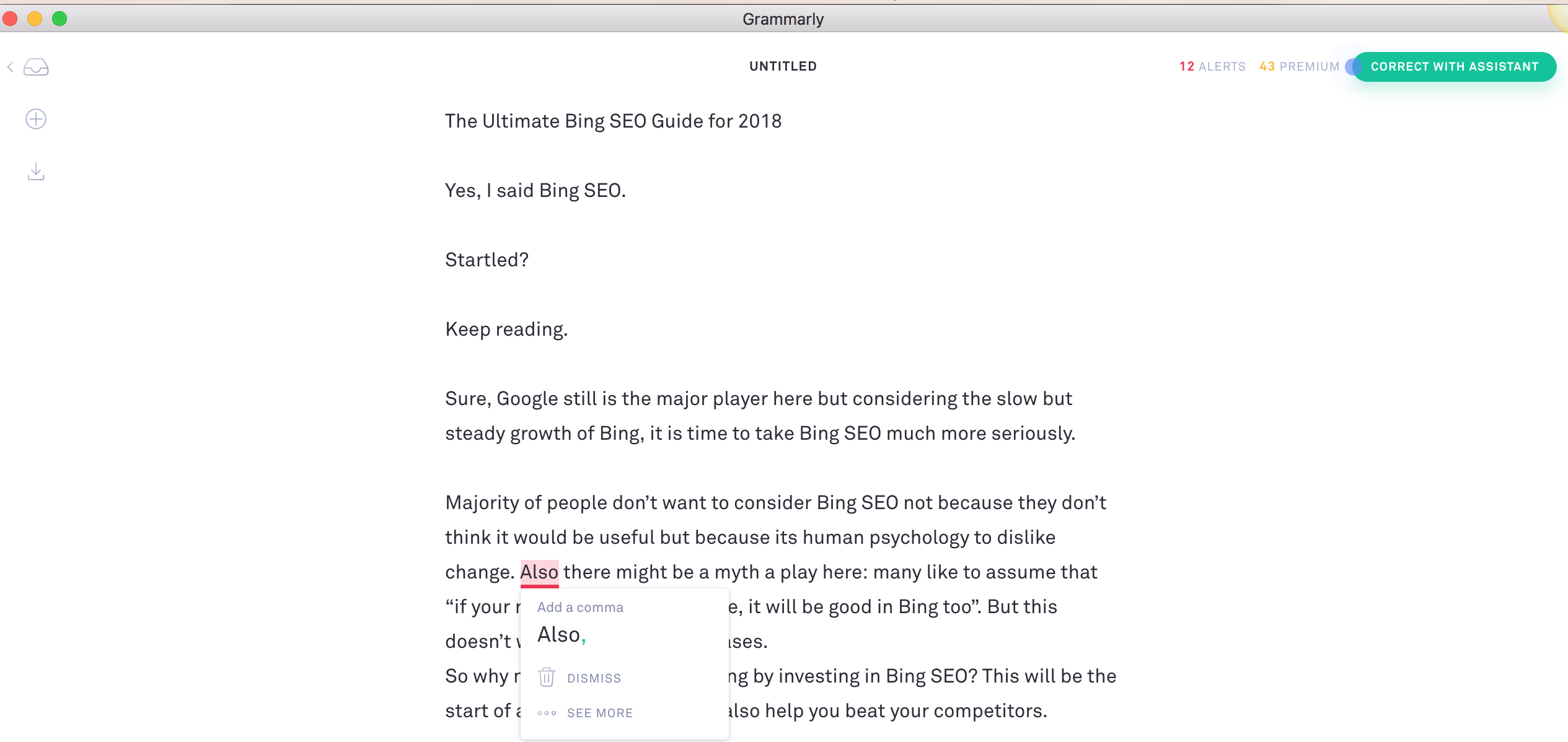SyedIrfanAjmal.com is reader-supported. When you buy through links on our site, we may earn an affiliate commission.
“Writing tips again?”, you say. There are a lot of writing tips available on the Internet, so why should you read this article? Besides, you might be wondering, if becoming a better writer has any business benefits?
Let me respond:
I always wanted to be a writer but didn’t have the courage to act on my desire.
Several years later, I’ve now been published in the world’s largest publications of the USA, Canada, UK, and Pakistan including:
- The Huffington Post (358 million unique visitors per month)
- Business.com (read by 30 million Americans each month)
- Virgin Startup (a publication of my favorite Richard Branson’s Virgin group)
- Aurora (Pakistan’s largest marketing & advertising magazine)
Writing has greatly improved my personal branding, and it has also been instrumental in winning us much bigger clients. So I think some of my writing advice would be beneficial for you for sure if you act upon it.
In my humble opinion, the best writers are those who have an eternal will to improve. These are the writers who will read tons, study the background and working methods of famous writers, and spend enormous amounts of time on improving themselves.
So here’s a pack of 100+ writing tips, categorized as:
- Writing Quality Content
- Being a Prolific Writer
- Environment
- Grammar
- Tools
Writing Quality Content
1. Write “crap” – The courage to write badly or naively makes writing easier and tricks the brain into thinking that you’re making progress (which is desperately important!). So go ahead, write badly. This bad stuff will improve exponentially, don’t worry.
2. Writers write – If you want to be a serious writer, the first step of all is that you call yourself a writer from day one, and write regularly, even if it is free writing done on a napkin while standing in a queue.
3. Build discipline – Set a daily writing quota. The blank page is a nightmare, I know. That’s where discipline comes in and wins. Practical stuff? Sit back to write for 50 minutes today, then gradually increase the time.
4.
 Stephen KingAmerican Author Whose Books Have Sold More Than 350 Million Copies
Stephen KingAmerican Author Whose Books Have Sold More Than 350 Million Copies
If you don’t have time to read, you don’t have the time – or the tools – to write. Simple as that,
Stephen King is right. You should be an ardent reader. Read everything – from crap to hardly-understood-stuff to stuff that has nothing to do with your specialization, business or profession. There is a story of how an economist came up with a new theory of economics when he got bored of reading books of his own niche and instead, started reading a biology book.
5. Stay consistent – Use Coach application to build the habit of writing. This habit will make sure you stay consistent with practicing your craft.
6. Practice – Though this tip is a cliche, but is still indispensable. Of course, practice.
7. Do keyword research – Keyword research is done correctly lets you dive into the minds of your audience. It teaches you the language your audience use.
8. You’re responsible – How many professional writers have you heard say, “My mom used to wake me up at 4 to write”? None, right? Your mother will not (perhaps!) push you; writing isn’t skiing or athletics!
9. Don’t use jargons – It is silly to use complicated words, which general population will not understand. And a good writer is not silly enough to do that, right?
The most valuable of all talents is that of never using two words when one will do. – Thomas Jefferson
10. Admit that the “first draft is shit” – “The first draft of anything is shit,” said Hemingway, one of the greatest writers. You cannot expect your first draft to be even close to “good enough”, but it’s better than no draft at all. You got to be mindful of the basic rules of writing.
11. Edit mercilessly – The more the fluff, the blurry the value. The goal should not be about pushing the word count, but rather being concise.
12. Don’t edit while writing – “Write drunk; edit sober,” said Ernest Hemingway. He meant that while you’re writing, just write whatever comes to your mind. Then when you’re finished with writing, then edit.
13. Formatting comes later – While you’re getting words out of your head, don’t work on the formatting (making text bold or italic for instance). Doing so will only harm your natural creative flow, productivity, and zeal. The perfection part comes later.
14. Don’t use bad language – Substitute ‘damn’ with ‘very’. There’s no need to be very / overly transparent!
15. Don’t use any tool – I don’t deny the fact that tools are and can be VERY useful, but they’re nothing as compared to your will to improve. If you got what it takes, you could be the greatest of writers by just writing on Notepad or even on paper.
16. Ask for feedback – Wrote something? No matter how awful, send it to someone and ask for feedback.
17. Write when you don’t want to – Being a regular writer is not always shiny, it can also be about forcing oneself to work.
18. Analogies are like cows with wings – Make use of analogies in your writing. That doesn’t only make your point of view more readable but is also entertaining simultaneously.

19. Use quotations – You can see how I have added them on multiple occasions in this article. Do the same and back up your points by embedding quotations from public figures & celebrities.
20. Divide your piece into lots of paragraphs – Don’t scare readers by presenting the greatest food with no decoration at all! Split your article or text into more than a couple of paragraphs.
21. Add a “conclusion” – Chances are 2 out of 10 who open your post will read from top to bottom. Everyone is busy, all of us know. Why not make it easy for your readers and summarize your article at the end of the post with a Conclusion?
22. Utilize TL;DR – I like TL;DR a lot! It simply means Too long; didn’t read, which is used as a reply to a lengthy post or statement. If you tend to write longer posts, why not add a TL;DR at the start/end and be REALLY concise with this?

23. Proofread – It goes without saying that proofreading is an indispensable part of any quality piece. You should always proofread twice or thrice before declaring it error-less. After all, to err is human.
24. Talk to “you” – While you’re writing, you’re addressing humans. While referring to readers, use “you” instead of generic “reader”, “audience”, etc.
25. Avoid “I” – It’s in our nature to be eternally concerned about ourselves. That’s why it’s also natural to use “I” too many times. But readers don’t care. They want an answer to “What’s in it for me?”. Use “I”, but please minimize its use.
26. Get specific – People don’t want to know how to wake up early. Instead, they want to know how to wake up at 6 AM. They want more or less specific stuff.
27. Don’t stop when you’re done. Good writers don’t stop when that article or their daily writing quota is done; they go beyond them. The same goes for you.
28. Write as you talk – You don’t want to stop writing? Then think if you can stop talking. If you can’t, then you better write the talk. Seth Godin does it, so you don’t need a better motive than this!
29. Have a mission statement – Such a statement should reflect your values, beliefs, and probably your goals as a writer. Some call it a personal mantra, too.
30. Read your words aloud – Wrote something? How do you know if it is good and readable? Well, you can find out about readability by reading words aloud to yourself. Try it. It works.
31. Subscribe to writing-focused blogs – Blogs including Copyblogger, Goins Writer, Write To Done, Positive Writer, etc. are few of the well-known blogs about the craft. They do magic.
32. Start with attention-grabbing sentences.

A writer with knowledge about human psychology has an advantage over others. Your headline should get people to read the first paragraph, and the first paragraph’s job is to get the reader to read the next paragraph. So on and so forth.
33. Be transparent – Transparency gives you lots to talk about, but sometimes this stuff can be too private to talk about. So my advice to you is to be transparent with your beliefs but make sure you draw a line somewhere.
34. Never take critics seriously – Critics are like barking dogs, 90% of the time. Sure criticism helps you foster by unveiling your weak points, but there is a dearth of that criticism.
35. Do the research – Whatever you’re writing about unless you are an expert in this niche or you know lots of it, you will have to do an appropriate amount of research. Many times it’s not that you’re not motivated to write, it’s just that you don’t know much about the topic at hand.
36. Add “writer” to your signature – Unlike our engineer-friends who must graduate to be able to add legally “Eng.” to their signature, you can add “writer” to your signature right from now.
37. Write for readers, not bots – The majority relies on search engines for information, so bloggers have to SEO-optimize content. It’s not wrong, but in doing so many forget about their real audience – that is – humans.
38. Approach writing as an “activity you love” – Mindset matters. That’s why it’s important that you approach writing articles, ebooks, etc. as not something that you “have to do” but rather something you “love to do”. It makes a huge difference.
39. Don’t write to get published – While you’re beginning, don’t write to get published. Writing should be fun, not some “quid pro quo” game. Of course, you want to get published. But don’t write to get published. Wait for it to happen naturally.
40. Have a blog – A blog about your journey to be a writer? About your favorite hobby? Random scribblings? “What topic should I blog about?” Pick any and evolve on the go! A blog is a fun thing to have and an ideal place to practice public-writing.
41. The topic doesn’t matter (at first) – One of the first questions from a non-writer considering to be a writer is that “What should I write about?” A common misconception is that one should have a topic to be able to write. That’s a lie! You don’t need a topic; you need to get started! But we will share a video soon on how to find great topics to write about.
42. Expect less – “The happiest authors are the ones that don’t expect much,” said Seth Godin. Because this is a journey that takes off only when you give more than you get, expectations are very likely to be shattered.
43. Learn Copywriting – Copywriting is the art of persuading the readers, subconsciously, to read the next sentence. And next, next till the end. It is about learning how the human brain works. Here is an excellent guide by Perrin Carrell of Authority Hacker which will help you maximize your ROI through SEO copywriting.
44. Use bullet points – They convey the main points. Bullet points also help readability. Google likes them. And who doesn’t like to-the-point stuff?
45. Add subheadings – Nobody likes to read something without knowing its clear point. Subheadings convey that point.
46. Be courageous – A lot of wanna-be-writers don’t become writers because they lack the courage to share their work publicly. You don’t want to end up there.
47. Be interested – “If the author doesn’t like people, people won’t like his or her stories,” said a leading editor. So take a genuine interest in your audience.
48. Know headlines – 8 out of 10 people will read your headlines, but only two out of 10 will read the rest of the article. Magnetic headlines get more clicks.
49. Keep on promises – Magnetic headlines are magical. But if you want un-magic, promise sweet candies in headlines but deliver chewing gum. Nobody likes being betrayed too.
50. Be resourceful – There are scores of people who know your topic more than you do. You should link to relevant work often. Being selfish doesn’t help.
51. Be simple – Don’t use long, hard, lesser-known words when equivalent short words exist. Be as simple as possible.
“Any fool can make things bigger, more complex, and more violent. It takes a touch of genius-and a lot of courage-to move in the opposite direction.” – Albert Einstein
52. Write enthusiastically – Every one of us is enthusiastic about something. You are very likely to enjoy writing this topic than others. To find out that topic, ask “what is something that I talk incessantly about?”
53. Know your reader – “What’s in it for me?” is a question that every reader asks before/after landing on your page. Answer this question well and you will find readers coming in by themselves. When you know your audience, you write what they want/need, and that writing appeals to potential readers naturally.
54. Analyze – Use BuzzSumo to analyze which posts from your targeted industry performed well. Analyze these posts, their formatting, number of comments, shares, post length, etc.
Infact, use BuzzSumo before you start writing to find ideas that are in-demand right now. More on that in the below produced by Spark & Profit.
55. Give away for free – Your best stuff is something you’re afraid to share for free. Do it anyway, give your best content away for free.
56. Bold, italicize, underline – Once you’ve written your post, it’s time for formatting. Bold, italicize, underline, strikethrough, etc. wherever appropriate and not appropriate. They help readability.
57. Insert images – A blog post without images is like a bird without feathers. Images are the soul of a post. They captivate attention and help retain it.
58. Give examples – If you’re teaching something, judging something or demonstrating benefits of a particular activity or product, give examples.
59. Case studies – Case studies go the extra mile by providing practical tips and insights into how a particular methodology works in real life. They ignite authority. Here is an example of OrderHive uses case studies to celebrate customer success, and highlight the benefits of their software solution at the same time.
60. Personalize your writing – Generally speaking, you don’t consult strangers. Add a personal touch to your writing. Don’t just write it, make sure it has something about you, mirroring you.
61. Edit after publication – A published piece is not necessarily finished. Best writers know that. It’s more often than not that our perspective differs from what we’ve written. Make sure you keep your posts up to date.
62. Add a call to action – At the end of posts, ask your readers for something. Tell them exactly what to do next. This springs engagement on your blog.
63. Optimize content for SEO – Earlier I said not to write for bots, but for humans. But still it pays to make small tweaks to your content for SEO purposes.
64. Have a checklist – Before you hit “Publish”, make sure you follow important points from this checklist. The checklist should include things like: add an image, add bullet points, add “call to action,” etc.
65. Take part in contests – There are always writing contests taking place. Participate in them. Fellow-writing is a great way to improve. Here is a detailed list of writing contests put together by Jerry Jenkins (author of 190 books, and has sold 70 million copies).
66. Where did you write yesterday – Right now, wherever you’re sitting/standing, is that the same spot where you’ve been writing? If your answer is no, then it’s time you get a permanent place.
67. Find your perfect time window for writing – Such a time is the time during the day when you’re naturally into the phase. At such a time when you’re most productive despite your kitchen being a mess. It is when you have the least distractions and a fresh mind. For some, this would be the early hours of the day right after you have had a cup of coffee and some meditation maybe. For others, it may be at late nights when the kids are asleep, and the phone isn’t constantly buzzing.
68. Say “no” to non-essentials – To stay productive, you must learn to say “no” to Facebook, Twitter or even Quora.
69. Kill excuses even though your lizard brain hates changes. It wants to stay that same old kid. It knows how to seduce one into not doing something worth doing. It’s a Ph.D. holder in excuse-making. If these excuses are not killed instantly, you cannot be anything.
70. Outline posts – A large part of being productive includes smart work. Making a clear outline of your post helps in preparation.
71. Come back later – Okay the first draft is done? It needs redrafting, more ideation and a couple of edits. Take a break and come back with more ideas.
72. Editorial calendar – Plan ahead of the schedule. Knowing when to write what, ideas already start flowing in. If you’re a WordPress user, this Editorial Calendar plugin will help.
Stick to a schedule – use a plugin like Strive Content Calendar to organize your posts and visualize your upcoming articles. This will make it easier to publish content consistently and up your game as a writer.

73. Start writing early – It is more important to have time than to believe deceptively you’ve time. Writing early in the day will help you.
74. Reward yourself – Give yourself a cookie upon finishing a 30-minute writing session. In this way, you are psychologically tricking your brain into thinking that writing is rewarding, which in fact doesn’t reward promptly.
75. Write lists – Lists are easy to digest, mostly evergreen and also easy to create. Sure there are millions of list posts already, but guess what? – roughly 90% don’t have what makes a list hit!
76. Be concise – Don’t beat about the bush. Cut to the chase.
77. Build mini-habit – Doing something “stupid small” habitually is known as a mini habit. One such habit is very easy to stick to and harder not to do than to do. “Stupid small” may mean anything from writing 50 words a day to reading 1 page a day.
78. Learn shortcut keys – A lot of our time goes into spreading our hand to mouse. Only if we take the time to learn shortcut keys, we can save hours!
79. Don’t wait for inspiration – Inspiration sucks! Why don’t you just write instead of waiting for some miracle to happen and inspire you, which is very, very unlikely to happen?
80. Keep a journal – Jot down every other idea you come across. Months from now it will serve as a gold mine for writing ideas, and chances are huge that you will never know what a writer’s block is, until then.
81. Take breaks – Breaks make one productive, studies show. Pomodoro technique is a great break-involving productivity method.
82. Have daily rituals – These are simply a couple of activities you’d like to do, daily. As a writer, they should include activities like writing for an hour every morning, read for an hour, learn five new words, etc.
83. Focus – Our brain is wandering all the times, it always has. That’s why it’s hard to focus; to focus one’s concentration over writing or reading. But without question, it’s a trait worth having. For better focus, turn off all gadgets, close Facebook and Twitter, tell your family not to disturb you unless the house is on fire, and put all efforts into a great experience while reading or writing. If you feel the urge to Google a word you read or, to find more about an example you vaguely remember so as to write better about it, don’t give in to the temptation. Instead, just tone down such browsing tasks for later.
84. Test, test, optimize – To be a prolific writer, one requires a workflow; a system that ensures progress and avoids burnout simultaneously. But this is not a set-it-and-forget-it kind of a system. It requires lots of testing and tweaking.
85. Pomodoro technique – Pomodoro plainly means a 25 minutes work session. The technique means one Pomodoro followed by a 5-minute break.
On Environment
Any article about writing tips can’t be complete if we don’t talk about the environment you are in while writing.
86. Kill notifications – Disable notifications from Gmail, Facebook, Twitter, etc., so you can concentrate on your craft at handwriting. Keep your mobile silent, too.
87. Clear your desk. Ask “do I really need that pile of papers, calendar, printer, etc. on the desk?” If the answer comes ‘no’ or ‘rarely’, take it off your desk! If you need more help, check out the below video.
88. Turn off the light – If you’re writing too early in the morning, turning off the light will maximize your focus on the screen. John Saddington does it.
89. Disconnect – Go offline. The Internet is awesomest (IMHO), but it can also be destructive if used un-restrictively. It did wonders for Daniel Scocco, why wouldn’t it for you?
 Gretchen RubinAuthor: The Happiness Project, The Four Tendencies & more. #HappierPodcast co-host.
Gretchen RubinAuthor: The Happiness Project, The Four Tendencies & more. #HappierPodcast co-host.
Turn off your email; turn off your phone; disconnect from the Internet; figure out a way to set limits so you can concentrate when you need to, and disengage when you need to. Technology is a good servant but a bad master.
90. Join/Build a community – It takes perseverance to be a regular writer. And you’re very very likely to get discouraged and unmotivated if you’re surrounded by non-writers. If that’s your case, the odds are against you. Join/build a community of writers and increase your odds.
91. Don’t care about others – Just do your thing. Your job. Pour your energy into stuff that you care about. It is a part of your mental environment.
92. Kill mental distractions – Thousands of thoughts cross our minds daily. It’s amazing, but these can be unhealthy for writing; provided the fact you can easily be distracted by your mind. Open Notepad, and start pouring every thought into it. You just killed mental distractions.
On Grammar
No writing tips can help you if your grammar isn’t perfect.
93. Read Guide to Grammar and Writing – This is a website dedicated to teaching principles of English grammar and writing.
94. Use Grammarly – It is a Web application that helps “perfecting” Grammar. Just install it in Chrome, now wherever you write, your words are being “checked” by Grammarly for misspellings, punctuation mistakes, Grammar, etc. The below screenshot is from Grammarly’s standalone Mac app which I’ve used to edit an article.

95. Read English Grammar in Use – It’s a good book about the basics of English grammar. For intermediate stuff, I’d suggest going through English for Undergraduates by D.H. Howe.
96. Punctuation doesn’t hurt – Punctuation helps readability, so you must learn and practice it in your craft. The Punctuation Guide is a good resource on the subject.
A Few Tools
97. Try the Focus Writer app which was termed as one of the best free apps for distraction-free writing by Tech Radar, and it works on Linux, Windows, and Mac. However, in another post, Tech Radar mentions that this app isn’t the most optimal when it comes to editing content.
98. Write with Draft – An application designed to help you write better by providing you with tools to analyze your writing. Like a graph of word count vs. days, writing time, most productive time, et cetera.
99. Freedom is a limitation – Often we do our best work under restrictions. Such as I tend to write more when I’m offline. Freedom is an application for Apple’s Mac; it blocks The Internet to make you productive.
100. ColdTurkey – ColdTurkey blocks distracting websites for a given time. Best part? It doesn’t leave a way to unblock them.
Conclusion
That’s it, folks!
Not all of these tips may work for you. But some of them will work for you for sure. So embrace them.
Of all the tips my ‘favorite vote’ goes to the tip about courage; that one must be courageous to share his/her writing publicly.
How about you? Which tip is your favorite? Which tip do you disagree with? I’m looking forward to a meaningful discussion. 🙂


5 Responses
This was awesome!
Thanks, Sadia! 🙂
Thank you so much! Great tips! Yes, probably the one about the courage to share your writing is a favorite.
Gracias Maria! Yes that one’s my favorite too! Since without sharing we are not doing enough to get the critique we may need right! Wish you good luck with your writings :).